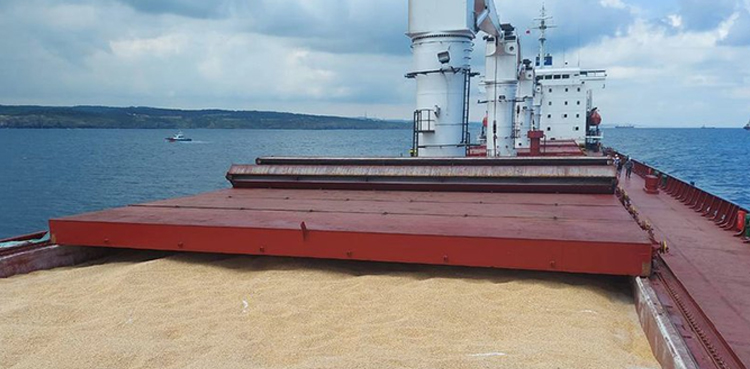
United Nations (UN) Secretary-General António Guterres said on Thursday that he had sent Russian Foreign Minister Sergei Lavrov “a set of concrete proposals” aimed at reviving a deal that allowed the safe export of Ukrainian grain via the Black Sea.
Russia quit the deal in July – a year after it was brokered by the United Nations and Turkey – complaining that its own food and fertilizer exports faced obstacles and that not enough Ukrainian grain was going to countries in need.
UN Chief Guterres’ letter comes ahead of a meeting between Russian President Vladimir Putin and his Turkish counterpart Tayyip Erdogan. Two Turkish sources told Reuters the pair will meet on Monday and primarily discuss Black Sea grain exports.
The Black Sea grain deal was intended to combat a global food crisis that the United Nations said had been worsened by Russia’s February 2022 invasion of Ukraine. Russia and Ukraine are both leading grain exporters.
“I believe we presented a proposal that could be the basis for a renewal, but a renewal that must be stable,” UN Chief Guterres told reporters, without elaborating on details of the proposal.
“We cannot have a Black Sea initiative that moves from crisis to crisis, from suspension to suspension. We need to have something that works and that works to the benefit of everyone,” he said.
Read more: Russia still dissatisfied with Black Sea grain deal
A Russian diplomat, speaking on condition of anonymity, told Reuters earlier on Thursday “there are no revelations” in Guterres’ letter to Lavrov and that it just “sums up of previous U.N. ideas, which didn’t fly.”
Lavrov said earlier on Thursday, after meeting with Turkish Foreign Minister Hakan Fidan in Moscow, that Russia sees no sign that it will receive the guarantees that will allow it to resume the Black Sea grain deal.
Russia has said that if demands to improve its own exports of grain and fertilizer were met, it would consider resurrecting the Black Sea agreement. One of Moscow’s main demands is for the Russian Agricultural Bank to be reconnected to the SWIFT international payments system. The EU cut it off in June 2022.
While Russian exports of food and fertilizer are not subject to Western sanctions imposed after Russia’s invasion of Ukraine, Moscow has said restrictions on payments, logistics and insurance have hindered shipments.
“We have some concrete solutions … allowing for more effective access of Russian food and fertilizers to global markets at adequate prices,” Guterres said. “I believe that, working seriously, we can have a positive solution for everybody.”
from International News Today - Breaking News, US News, World News https://ift.tt/JHs9PNK
via IFTTT

0 Comments